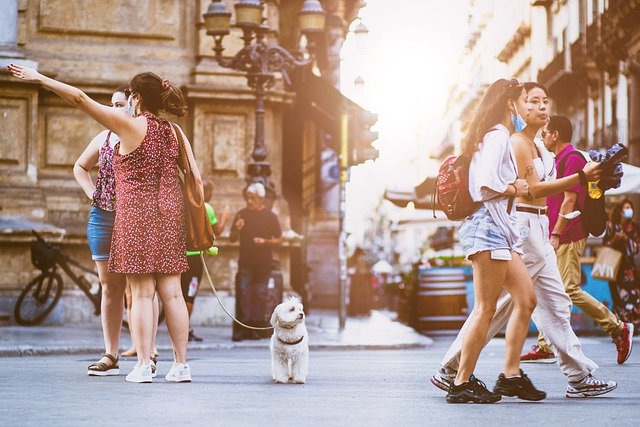
For the past year, the UK has been subject to a range of lockdown restrictions that have drastically changed our normal lives. The usual routines of heading out to work, popping to the pub on a Friday, and meeting friends for coffees have been taken away from us in order to keep the country safe.
When thinking about the impact that the "stay at home" orders have had on crime rates, you'd probably expect to see them go down dramatically. After all, a large number of crimes including drug dealing, anti-social behaviour, and shoplifting require criminals to go outside.
That being said, it might be naive of us to think that criminals who already break the law on a daily basis are sticking to the lockdown restrictions religiously, even if it means putting their lives and the lives of others on the line.
So, let's dig a little bit deeper into some crime statistics that were collected during lockdown to find out whether crime rates have, in fact, gone up or down.
Data collected by The Office for National Statistics
During the months of April and May 2020, the UK was put under strict national lockdown restrictions to control the spread of COVID-19. The Office for National Statistics conducted a Telephone-Operated Crime Survey to find out how trends in crime were changing during this period.
They were then able to compare the crime rates during this two-month period to a pre-lockdown two-month average to establish whether or not crime rates had gone up or down.
What did they find out?
The Office for National Statistics reported that during the period between April and May 2020, crimes (no including computer misuse or fraud) fell by 32%. During this time, there was also a shift in the public's perception of police officers, with 91% of all adults in the survey reporting that they were satisfied with the way the police in their area were responding to the ongoing situation.
Which crime rates fell the most and why?
There are a few crimes in particular that happened far less frequently due to lockdown restrictions. One of these was theft. In fact, theft offences fell to almost half the level recorded in April and May 2019.
Of these theft offences, domestic burglary saw a significant drop. With people at home more frequently and for longer periods of time, the opportunity for domestic burglaries in vacant properties was dramatically reduced.
Shoplifting offences were also less frequent. A lot of shops that would usually be open to the public were closed, therefore removing the opportunity for theft in public spaces.
Were there any exceptions to this trend?
Yes, sadly the coronavirus pandemic didn't stop certain criminals from carrying on with their daily business. Drug offences actually rose by 22% in April and 44% in Mary 2020 compared to the same months in the previous year.
This doesn't necessarily mean that the number of drug offenders doubled during this time. With police attention away from crimes like shoplifting and domestic burglary, and with fewer people out on the streets, it was easier to identify potential criminal activity and prosecute accordingly.
Home and Business Security
While these statistics indicate that certain crime rates have gone down, that doesn't mean that now is a time to neglect your security measures.
Business owners, who may have empty premises for the next few months (or longer) should really consider improving their business security to protect any assets inside. While shoplifting is certainly easier when a shop is open and operational, burglars are guaranteed to attempt a robbery at an unoccupied business if they can see there are no security measures in place.
Business Security >
Homeowners who have been spending more time than even in their properties might have become a little bit relaxed with their security systems. After all, we know that burglars are unlikely to attempt a break-in if they know you're at home.
That being said, many of us will be returning to work, visiting friends, and (hopefully) heading off on holidays later in 2021, so now is a great time to get your home equipped with a reliable home security system.
Home Security >
Our engineers are still working despite the COVID-19 lockdown and we've got measures in place to keep you safe. Get in touch to arrange a free quotation today!
Read More: Keeping You Safe During the COVID-19 Pandemic